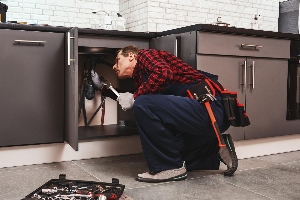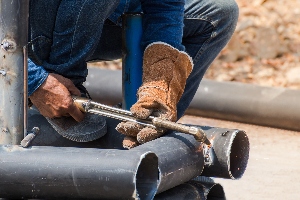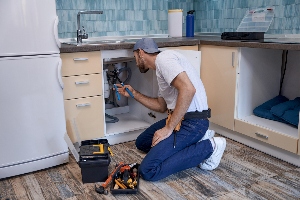Considering the quality of your home's water is essential for both health and comfort. You might wonder if investing in a whole house water filter is worthwhile. In many cases, a whole house water filter provides significant value by improving water quality and protecting your plumbing system, making it a solid investment for homeowners.
Understanding Whole House Water Filters
With varied water sources, contaminants can find their way into your household water supply, affecting everything from drinking water to laundry. A whole house water filter can effectively remove these impurities, enhancing both taste and safety. By filtering all the water that enters your home, you ensure that every tap, shower, and appliance is supplied with cleaner, better-quality water.
In addition to health benefits, a whole house water filter can extend the lifespan of your plumbing and appliances by reducing sediment buildup. This not only saves you money on repairs but also contributes to a more efficient home.
At One Call Plumbing we install top-of-the-line filtration systems that remove contaminants, improve taste, and protect against plumbing corrosion, enhancing your overall water quality and health. Schedule a service today!
Types of Contaminants Removed
Whole house water filters effectively target a wide range of contaminants. This includes sediment, chlorine, bacteria, and heavy metals like lead and mercury.
- Sediment: Filters trap dirt and rust particles, protecting your plumbing and fixtures.
- Chlorine: Effective in reducing chlorine levels, which is essential for better taste and odor.
- Heavy Metals: Various filtration media can eliminate or reduce harmful metals.
These systems significantly improve water quality by reducing harmful substances, making your water safer for all household activities.
Components of a Whole House Water Filter
Most systems consist of several key components that work together. First, a sediment filter captures larger particles. This is often followed by one or more carbon filters that use activated carbon to eliminate chemicals, chlorine, and improve taste.
Some systems include KDF for heavy metal removal and ion exchange to soften water and balance pH levels. It’s important to consider the flow rate of the filter to ensure it meets your household's water demand. Regular maintenance and timely replacement of filter elements are crucial for optimal performance.
Benefits of Whole House Water Filtration
Whole house water filtration systems provide a variety of advantages that enhance your home's water quality. These systems can significantly contribute to your health, improve the taste and smell of your water, lead to long-term savings, and protect your plumbing and appliances.
Health and Safety Improvements
Whole house water filters significantly enhance the quality of your drinking water. They can remove contaminants like lead, pesticides, herbicides, and bacteria, providing you with safer drinking water.
Reduced exposure to these harmful substances can improve your overall health. Improved water quality can also benefit your skin and hair, reducing irritation caused by chlorine and other chemicals.
Regular filtration ensures that you and your family have access to clean water for daily use, further lowering the risks associated with contaminated water sources.
Impact on Water Taste and Odor
Filtration systems improve the taste and smell of your water. Chlorine, sulfides, and organic compounds often contribute unpleasant odors and flavors.
With comprehensive filtration, you'll notice a more refreshing taste and cleaner smell, making drinking water more enjoyable. Clean water has a direct impact on beverages, soups, and cooking, enhancing the flavors of your meals.
Moreover, your filtered water can eliminate the need for bottled water, reducing plastic waste. You’ll find that consistently good-tasting water encourages better hydration habits for you and your family.
Effects on Skin and Hair Health
Using filtered water can positively impact your skin and hair health. Many municipal water supplies contain chlorine and chloramines, which can cause dryness and irritation. Filtering these chemicals out may lead to softer skin and more manageable hair.
Hard water, often rich in minerals like calcium and magnesium, can leave behind scale buildup. This affects both your plumbing and your hair, potentially leading to dryness and increased breakage. By installing a water filter system, you can reduce these harsh minerals, making your bathing experience healthier.
Long-term Cost Savings
Investing in a whole house water filtration system can lead to significant long-term financial savings. You can reduce the need for bottled water, which can add up over time.
Additionally, these systems decrease the likelihood of plumbing repairs due to contaminants that can cause corrosion and wear. Protecting your plumbing extends the lifespan of pipes and appliances, minimizing future costs.
By avoiding costly repairs and replacements, your initial investment can pay off in savings, enhancing your budget in the long run.
Protection for Plumbing and Appliances
A whole house water filter protects your plumbing and appliances from damage caused by hard water and contaminants. These systems can reduce mineral buildup, which is common in untreated water.
Preventing this buildup helps maintain the efficiency of your water heaters, dishwashers, and other appliances. You’ll find that they operate more efficiently, leading to lower energy bills.
By ensuring that only clean water enters your home, you can extend the life of your plumbing fixtures and appliances, preventing costly replacements and repairs.
Installation and Maintenance of Whole House Water Filters
Understanding how to install and maintain a whole house water filter is essential for optimal performance. Proper installation and routine upkeep can ensure that your system works efficiently and lasts longer, providing you with clean water throughout your home.
Installation Guide
Installing a whole house water filter can be a straight forward process, but it requires careful planning. Begin by choosing a suitable location near the main water line. This area should provide easy access for maintenance.
Ensure you have the necessary tools, such as pipe wrenches, Teflon tape, and a tubing cutter. If you’re comfortable with plumbing, you can typically handle the task yourself.
Follow the manufacturer’s instructions closely for accurate installation. If you prefer not to tackle it yourself, consider hiring a professional to ensure that everything meets local plumbing codes.
Routine Maintenance
Routine maintenance is vital to keep your whole house water filter functioning properly. Regularly inspect the system for leaks or wear and make adjustments as necessary. Check connections and valves to ensure they remain secure.
Cleaning the filter housing is also important. You should do this at least twice a year to remove accumulated sediment or debris. Use a mild detergent and water for this process.
Monitor the water quality out of your taps. If it changes noticeably, it may indicate that maintenance is required sooner than scheduled. Keeping a maintenance log can help track these actions and set reminders.
Filter Replacement and Lifespan
The lifespan of your water filter depends on several factors, including water quality and usage. Generally, filters may need replacing every 6 to 12 months.
Check the manufacturer's guidelines for specific recommendations, as different systems have varying requirements.
To replace a filter, turn off the water supply first. Remove the old filter and clean the housing before installing the new one. Ensure it is seated correctly to prevent leaks.
Keeping track of your filter replacement schedule can help avoid a decline in water quality. Consider using a calendar or reminder app for timely replacements.
Selecting the Right Whole House Water Filter
Choosing the appropriate whole house water filter requires careful evaluation of your water needs, knowledge of filter technologies, understanding specifications, and budget considerations. Each aspect plays a crucial role in ensuring you select the right system for your home.
Analyzing Water Quality and Needs
Start by performing water testing to assess the quality of your supply. Look for common contaminants such as chlorine, lead, sediment, and hardness. A detailed analysis will identify specific issues that your filter needs to address. Consider your household's daily water consumption, as higher usage may necessitate a system with a greater capacity.
Determine your intended outcomes—whether you're focused on removing specific contaminants or improving taste and odor. This investigation helps narrow your options and ensure your choice efficiently addresses your needs.
Comparing Filter Technologies and Brands
Familiarize yourself with the various types of filter technologies available. Common options include:
- Sediment Filters: These effectively remove larger particles like dirt and rust.
- Carbon Filters: Ideal for improving taste and removing chemicals, such as chlorine.
- Reverse Osmosis: Provides thorough filtration, tackling a wide range of contaminants.
- UV Filters: Useful for eliminating bacteria and viruses without chemicals.
Research reputable manufacturers that offer proven performance in each category. Reading reviews and comparing ratings will guide you toward a reliable system. Pay attention to the longevity and effectiveness of each filter type to ensure a good fit for your home.
Understanding Filter Specifications
Understanding filter specifications is essential for making an informed decision. Key metrics include:
- Flow Rates: Measure how much water can pass through the filter. Ensure it meets your household's peak demand.
- Filter Capacity: Know how long filters last before needing replacement. Typical lifespan ranges from several months to a few years, depending on usage and contaminant levels.
- Filter Media: Investigate the materials used in the filters. Certain media types may be more effective at removing specific contaminants.
Carefully analyze these specifications to ensure the filter meets your requirements effectively.
Book your whole house water filter installation today!












